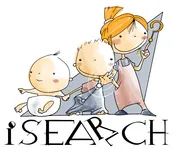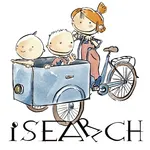Research
Our research at the Chair of Cognitive and Developmental Psychology is dedicated to various facets of cognitive development and learning processes in children. We employ a multidisciplinary approach that integrates methods from psychology, education, and technology to understand and enhance children's learning experiences.
Through our investigations, we aim to:
- Decipher the ontogenesis of cognitive abilities
- Explore the role of actions and movements in learning
- Deepen the understanding of developmental mechanisms
- Examine the impact of social cognition on learning
- Apply our insights to transformative educational practices
Each area of our research focuses on different yet interconnected aspects, contributing to a comprehensive understanding of active learning in children.
Developmental mechanisms and processes
Cross-cultural differences, Physiological measures, Computational, Longitudinal, Individual differences

This area delves into the underlying developmental mechanisms and processes that support active learning in children. We investigate the influence of cultural backgrounds on information-seeking strategies (cross-cultural differences). We may utilize physiological measures or computational modeling approaches to shed light on the biological and cognitive processes involved in active learning. Longitudinal studies allow us to track the development...
Ontogeny
Comparative, Emergence, Eye-tracking & EEG

We employ comparative methodologies to shed light on the unique information-seeking behaviors exhibited by children as compared to adults or other species. We further investigate the emergence of active learning skills and chart their trajectory across development. Eye-tracking and EEG methodologies provide valuable insights into the cognitive processes underlying children's active learning...
Social Cognition

Do our social environments impact how we engage with information? Our work in this area sits at the intersection of social cognition and active learning. We test how individuals' perceptions of their social contexts changes how efficiently they search for information, what information they choose to gather, and which sources they trust.....
Spatial Cognition
Spatial exploration, AR/VR, Sports and movement

Are children systematic explorers or do they learn about the environment around them through randomly stumbling upon important landmarks and objects? Do adults follow rational exploration and navigation strategies at all? Are people of any ages capable of efficiently planning their spatial navigation multiple steps ahead - and if they are, how might this ability differ between people who regularly engage in different types of physical activities, like sports? To address such questions experimentally, our group employs a variety of methods ranging from classic online or 2D tablet games and 3D Augmented Reality (AR) tablet games, to tasks that take place in Virtual Reality (VR)....
Applied
Transformative experience, preparedness, interventions, educational work, museum research, digital competence

Bridging theory and practice, this focus area aims to apply research findings to real-world contexts, emphasizing transformative educational experiences, interventions for diverse learners, digital competence in education, and collaborative work with institutions like museums to enhance learning opportunities.Our research group also focuses on the practical implementation of our scientific findings. We are working on developing innovative teaching methods and concepts....